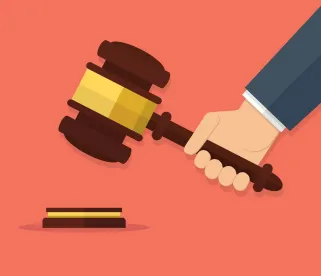The U.S. Court of Appeals for the Seventh Circuit has ruled that a plaintiff qualified as a "consumer" who can file a lawsuit for alleged violations of the Fair Debt Collection Practices Act (FDCPA) by a debt collector attempting to collect a debt the plaintiff claimed he did not owe. In light of the court's expansive reading of who is a "consumer," additional grounds for dismissal beyond the plaintiff's status as a "consumer" may be necessary for a debt collector to defeat an FDCPA lawsuit brought by a plaintiff who claims not to owe the debt in question. As a result, the complaints filed in such lawsuits should be thoroughly reviewed by legal counsel to identify other possible grounds for dismissal.
In Loja v. Main Street Acquisition Corporation, the plaintiff filed a lawsuit in federal district court for alleged FDCPA violations against Main Street Acquisition Corporation and the law firm it retained to file a state court collection action against the plaintiff. Main Street sought to collect on a charged-off credit card account it had purchased, which someone had opened under the plaintiff's name. The plaintiff claimed that the debt was not his and that the collection action was time-barred under state law. After a bench trial, the state court dismissed Main Street's suit with prejudice but did not provide the grounds for its decision in favor of the plaintiff.
Mr. Loja filed the FDCPA lawsuit and Main Street moved to dismiss, arguing he failed to sufficiently allege that the debt was for personal, family, or household purchases as required by the FDCPA. The district court, however, raising the issue for the first time in the case, dismissed the lawsuit because it concluded the plaintiff did not meet the FDCPA definition of a "consumer," which is "any natural person obligated or allegedly obligated to pay any debt." According to the district court, the plaintiff did not satisfy this definition because the phrase "obligated or allegedly obligated" required a plaintiff to allege that he or she actually owed a debt, and the plaintiff claimed he did not.
The Seventh Circuit reversed, holding that the FDCPA's definition of "consumer" includes consumers "who have been alleged by debt collectors to owe debts that the consumers themselves contend they do not owe." In the Seventh Circuit's view, the word "consumer" includes obligations alleged by a debt collector as well as those alleged by consumers. The appeals court observed that this interpretation "conforms to the structure and text of the rest of the FDCPA, which focuses primarily on the conduct of debt collectors, not consumers," and also "comports with precedent from our own circuit and the Eighth Circuit." The Seventh Circuit concluded that the district court had improperly dismissed the complaint on the grounds that the plaintiff was not a "consumer" and remanded the case. The court "decline[d] to [otherwise] rule on the sufficiency of the pleadings."





 />i
/>i

